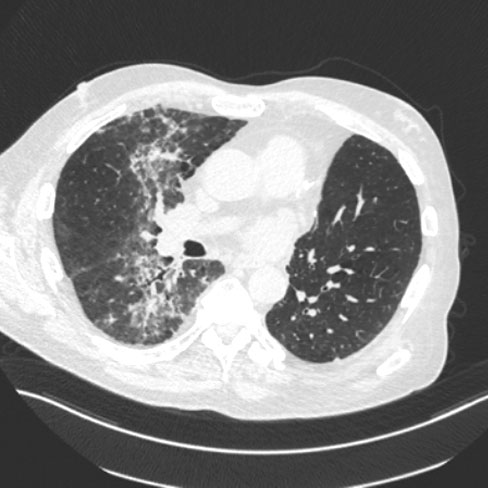Over-the-counter test for flu, COVID-19 authorized
This column reviews recent recalls, alerts, and approvals.
Recalls
A class I recall of certain CADD infusion system administration sets and medication cassette reservoirs by Smiths Medical due to two potential issues. The first issue, tubing occlusion, may result in underdelivery or nondelivery of medication, despite the pump displaying that the infusion is running properly. The second issue, false “no disposable attached” alarms, may prevent pump use. There have been 1,571 incidents, 14 injuries, and two deaths related to the tubing occlusion issue and 9,101 incidents, 11 injuries, and no deaths related to the false alarm issue. The recall includes about 20 million devices distributed since June 15, 2018.
A class I recall of Nuclear Medicine 600/800 Series Systems by GE HealthCare due to an issue with two mechanisms that prevent uncontrolled detector movement. If the ball screw fails and the safety key is missing, the 1,212-pound detector could fall, potentially crushing or trapping a patient. The company internally identified the issue, and no related complaints, injuries, or deaths have been reported. The recall includes 688 devices distributed from April 1, 2018, to Dec. 16, 2022.
A recall of 27 lots of levothyroxine sodium oral solution (TIROSINT-SOL) by IBSA Pharma Inc. due to a company analysis showing a slight decrease below 95% of its labeled amount of levothyroxine sodium (T4) for some lots. The recall does not apply to levothyroxine sodium capsules (TIROSINT). No related adverse events have been reported.
A recall of all lots of Artificial Tears Lubricant Eye Drops by Global Pharma Healthcare, distributed by EzriCare LLC and Delsam Pharma, due to potential microbial contamination. The CDC alerted the FDA to an investigation of a multistate cluster of Verona integron-mediated metallo-β-lactamase- and Guiana-extended spectrum-β-lactamase-producing carbapenem-resistant Pseudomonas aeruginosa infections possibly associated with the use of these products. There have been 55 reports of adverse events, including eye infections, permanent loss of vision, and a death with a bloodstream infection. The FDA also placed the manufacturer on import alert for providing an inadequate response to a records request and current good manufacturing practice violations.
A recall of all lots of Alcohol Antiseptic 80% Alcohol Solution by nanoMaterials Discovery Corporation branded as “Snowy Range Blue” because certain batches may exceed FDA limits for methanol. No related adverse events have been reported. Affected products were sold nationwide to distributors. Sales of the product were discontinued in the fourth quarter of 2021.
Miscellaneous
A letter to clinicians about the risk of early structural valve deterioration with Abbott Trifecta valves, including the Trifecta Valve and the Trifecta Valve with Glide Technology (Trifecta GT). Information from published literature has shown a higher cumulative incidence of early (five years or fewer) structural valve deterioration for these valves compared to other commercially available surgical bioprosthetic valves. The FDA is working with the manufacturer to further evaluate the issue and develop additional patient management strategies, if needed.
COVID-19 updates
An emergency use authorization (EUA) for the first over-the-counter at-home diagnostic test that can differentiate and detect influenza A and B and SARS-CoV-2. The Lucira COVID-19 & Flu Test is a single-use at-home test kit that provides results from self-collected nasal swab samples in roughly 30 minutes. Patients can purchase the test without a prescription and perform it using nasal swab samples self-collected by patients ages 14 years and older or collected by an adult for children 2 years of age or older. In symptomatic patients, the test correctly identified 99.3% of negative and 90.1% of positive influenza A samples, 100% of negative and 88.3% of positive COVID-19 samples, and 99.9% of negative influenza B samples. Since there were not enough cases of influenza B to study, validation confirmed that the test can identify the virus in contrived specimens. The EUA requires the test maker to continue to assess the test's ability to detect influenza B in real-world settings.
Revisions to two EUAs, for nirmatrelvir/ritonavir (Paxlovid) and molnupiravir (Lagevrio), removing the requirement for positive SARS-CoV-2 test results to prescribe these products. While the FDA continues to recommend that clinicians use viral testing, the agency recognizes that in rare instances, patients with a recent known exposure who develop symptoms may be diagnosed as having COVID-19 even if they have a negative test result. In such instances, the clinician may determine that treatment with authorized therapeutics may be appropriate if the patient reports mild to moderate symptoms and is at high risk for progression to severe COVID-19, including hospitalization or death, the FDA said.
Approvals
Daprodustat tablets (Jesduvroq) as the first oral treatment for anemia caused by chronic kidney disease for adults who have been receiving dialysis for at least four months. The drug, which increases erythropoietin levels, is not approved for patients who are not on dialysis. In a study of nearly 3,000 adults, the drug raised and maintained hemoglobin levels within the target range of 10 to 11 g/dL, similar to that achieved with injected recombinant human erythropoietin. The medication carries a boxed warning for increased risk of thrombotic vascular events, including death, heart attack, stroke, and blood clots in the lungs, legs, or dialysis access site. Warnings and precautions include risks of heart failure hospitalization, increased blood pressure, and stomach erosions and GI bleeding. The most common side effects are high blood pressure, thrombotic vascular events, abdominal pain, dizziness, and allergic reactions.
Velmanase alfa (Lamzede), the first enzyme replacement therapy approved for treatment of non-central nervous system manifestations of alpha-mannosidosis, a rare genetic condition characterized by lack of the alpha-mannosidase enzyme in the body. The most common adverse reactions are hypersensitivity reactions, including anaphylaxis.
Note: The FDA states that drugs are not always commercially available immediately after approval.




